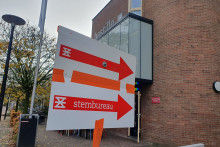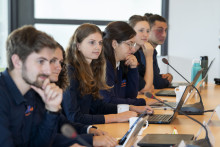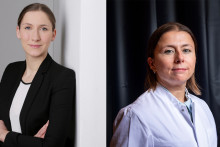On 29 October, Dutch voters will go to the polls again. Although many manifestos are not yet available – and those that have been published are still awaiting official approval – it’s clear what issues parties want to talk about in the run-up to the elections.
For this article, we looked at the draft manifestos of VVD, GroenLinks-PvdA, NSC, BBB, PvdD, SP, JA21 and ChristenUnie. These plans may still be subject to minor changes by party members. Other parties will publish their manifestos at a later date.
Budget cuts
The Schoof government is cutting higher education and research budgets by roughly half a billion euros. Only JA21 and GroenLinks-PvdA state that they want to reverse these cuts.
While the manifestos of SP, PvdD, VVD, NSC, BBB and ChristenUnie don’t specifically mention this topic, that doesn’t say everything. SP, for example, wants to invest ‘substantially’ in basic and independent research. ‘Not everything has to be immediately applicable or profitable’, the party believes.
Slow-progress penalty
VVD attracted some attention this summer with its proposal of a ‘quick-progress bonus’ for students who manage to complete their studies within the expected timeframe. This bonus is intended as an incentive for students to stay on track – the opposite of the previously announced ‘slow-progress penalty’.
The latter has also made a comeback in VVD’s manifesto, albeit with a twist: the fine – dubbed a ‘delay contribution’ – won’t be paid by the underachieving student, but by their education institution.
BBB is the only party to unequivocally call for a slow-progress penalty, even though the term itself is studiously avoided in its manifesto. The party notes that it wants students with ‘significant’ study delays to pay a ‘fair contribution’ in the form of higher tuition fees.
The idea of a slow-progress penalty was first proposed by the current government (PVV, VVD, NSC and BBB). Students who took more than one additional year to complete their Bachelor’s or Master’s degree would have to pay an extra three thousand euros in tuition fees. Following fierce protests, the government withdrew the plan.
While the opposition is likely still opposed to the penalty, SP is currently the only party to explicitly state this in its manifesto. Slow-progress penalties ‘have run their course’, the party writes.
Study costs
To make studying less expensive, the government can either reduce tuition fees or increase student financing. SP wants to do both. The party intends to do away with tuition fees altogether while increasing the basic student grant.
PvdD has similar plans: it wants a higher basic student grant, especially for students living away from home, and a ‘sharp’ reduction in tuition fees. Moreover, it believes that students should always be entitled to free public transport, regardless of how long it takes them to complete their studies.
GroenLinks-PvdA also promises to increase students’ incomes and argues for a ‘fair basic student grant’. Its manifesto doesn’t mention tuition fees.
While NSC wants to keep the basic student grant, it’s also concerned about foreign students applying for student financing in both the Netherlands and their home country. This should be punished with heavy fines, the party believes.
VVD wants to use tuition fees to influence enrolment numbers for certain programmes, for instance by lowering the costs of programmes in the fields of technology, healthcare, education, security and climate science. Meanwhile, other programmes should be reduced in size: ‘We will limit the number of places available in programmes that offer poor labour market prospects.’
International students
All of the manifestos published until now touch on the issue of international students, who can expect to face stricter admission requirements.
NSC, for example, writes that it will ‘curb student migration’, which it proposes to do by raising tuition fees for non-European students. Moreover, the party still wants the vast majority of higher education programmes to be taught in Dutch. Exemptions could be granted to specific Master’s programmes and programmes that struggle to attract enough students.
VVD is of a similar mind. ‘International talent is important for our knowledge economy’, reads the party’s manifesto, which highlights the importance of ‘students, scientists and knowledge workers in fields where we face pressing shortages, such as STEM and AI’.
BBB wants more Dutch-language instruction and fewer foreign students as well, but the party also recognises the needs of regional education institutions, which may struggle to survive without international enrolments. English should only be used if this is ‘unavoidable’, according to the manifesto.
Other parties, such as JA21, SP and ChristenUnie, are critical of internationalisation as a revenue model for higher education institutions, whose funding depends on their enrolment figures – a situation they intend to change. Like NSC and BBB, they also want programmes to be taught in Dutch where possible.
GroenLinks-PvdA takes a more moderate stance on this issue. While the party does want to ‘get a handle on internationalisation’, it believes that higher education institutions should take the lead. PvdD also wants the government to engage with the sector to address internationalisation and the growing use of English as the main language of instruction. The party is intent on avoiding a situation where ‘internationally oriented programmes’ could face termination.
Funding
Higher education institutions receive funding per student. So, given the fact that enrolment numbers are already declining, how do those calling for a curb on internationalisation plan to prevent cut-throat competition for students? Many parties suggest that education institutions should be funded on a more ‘stable’ basis.
BBB and NSC are in favour of this as a means to prevent programmes at regional education institutions from disappearing. GroenLinks-PvdA, on the other hand, sees more stable funding as a way to reduce competition between institutions.
SP and PvdD want to provide stable funding to support scientific research, with the aim of making researchers less dependent on external backers.
Even VVD, typically a fan of competition, is in favour of a more stable funding system. The party wants to use funding as an instrument to increase the government’s influence on the ‘capacity’ of programmes. In other words, it aims to cap the size of certain programmes by reducing their funding, thus ensuring a better alignment between higher education and the labour market.
The ChristenUnie also wants ‘a better and fairer system for funding higher education institutions’ and promises that international and overall enrolment numbers will become less important.
Right to protest
There have been many protests and occupations in higher education in recent years. Initially, these mainly focused on the sector’s ties with the fossil fuel industry, but later this shifted to partnerships with Israeli universities. Sometimes they culminated in riots and vandalism.
Parties such as BBB, VVD and JA21 condemn these disruptions and want rioters to be punished. JA21 even wants higher education to be ‘free of activism’.
ChristenUnie, BBB and VVD all support a ban on face-covering clothing. So does NSC, provided that exceptions are made for certain protesters, such as Iranian dissidents demonstrating outside their country’s embassy.
Although the ChristenUnie warns that the right to protest is under pressure, it also wants to tighten demonstration protocols ‘where necessary’. GroenLinks-PvdA, PvdD and SP oppose all restrictions on the right to protest.
Elections
As mentioned above, the elections will take place on October 29. Other parties are expected to publish their manifestos soon.







